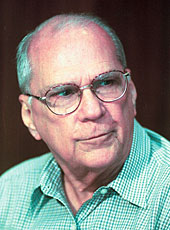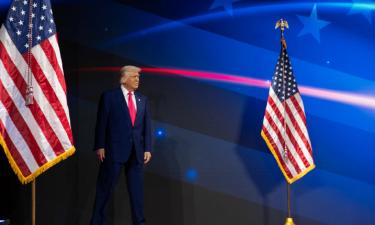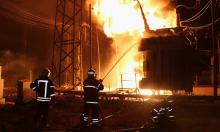Nicaragua's crisis rises concerns among fellow Latin American countries
The conflict between President Bolanos and the Congress provokes reactions across the region
Nineteen Latin American foreign affairs ministers discussed last Friday in Buenos Aires the current situation in Nicaragua, where President Enrique Bolanos battles a rebel Congress that aims to strip him from much of his power. Ministers issued a statement backing the democratic rule in the Central American nation and the continuity of Bolanos in office until next year elections.
The Nicaraguan crisis began late last year when the National Assembly revised the constitution, stipulating that leaders of public service organs will be appointed by the parliament while the president's appointments of ministers and ambassadors should also gain the approval of lawmakers. The government has repeatedly voiced opposition to the revision, saying it helped the opposition strip the president and the authorities of power.
However, that is only the institutional outcome of a deep crisis in the political representation of the Nicaraguans and its bi-party system. Some Nicaraguans believe the country has been “hijacked” by the country's leftist and rightist party bosses (“Caudillos”) former President Daniel Ortega, of the Sandinista National Liberation Front (FSLN), and former President Arnoldo Aleman, of the Liberal Constitutionalist Party (PLC).
Meanwhile, Washington has risen concerns over a possible come back to power of the Sandinists, who led the guerrilla war in the eighties against the US backed “contras.” The FSLN is today a center-left party, but is still commanded by US foes and according to the White House, an eventual Ortega's return to power could frustrate its attempts to seal a free trade agreement between all Central American nations.
President Bolanos taken an independent way after breaking off ties with his predecessor Arnoldo Aleman. He has bee threating the bi-party system by trying to take third way in country's politics. That ensured him the animosity of a Congress controlled by both the FSLN and the PLC.
“Bolanos was once a prominent cotton-farmer whose large landholdings were expropriated by the Sandinistas in 1985. Soon after, he became head of the Higher Council of Private Enterprise (COSEP), a position from which he sallied forth to relentlessly attack the Sandinistas”, says Frank J. Kendrick, a Senior Research Fellow at the Council on Hemispheric Affairs, based in the US.
“Because Bolanos lacked his own power base in the PLC, Aleman regarded him as a manipulable successor to temporarily hold the Presidency until Aleman could run again, as permitted by the constitution. However, Bolanos turned out to be considerably stronger-willed than expected, and he soon became a formidable opponent of both Aleman and Ortega”, Kendrick concludes.
Latin American leaders are afraid of attempts to oust Bolanos before 2006 elections. The Nicaraguan Foreign Ministry is very active trying to obtain regional support to Bolanos, as the way to next year elections is too long.
On the photo: Nicaragua's President Enrique Bolanos
Subscribe to Pravda.Ru Telegram channel, Facebook, RSS!




